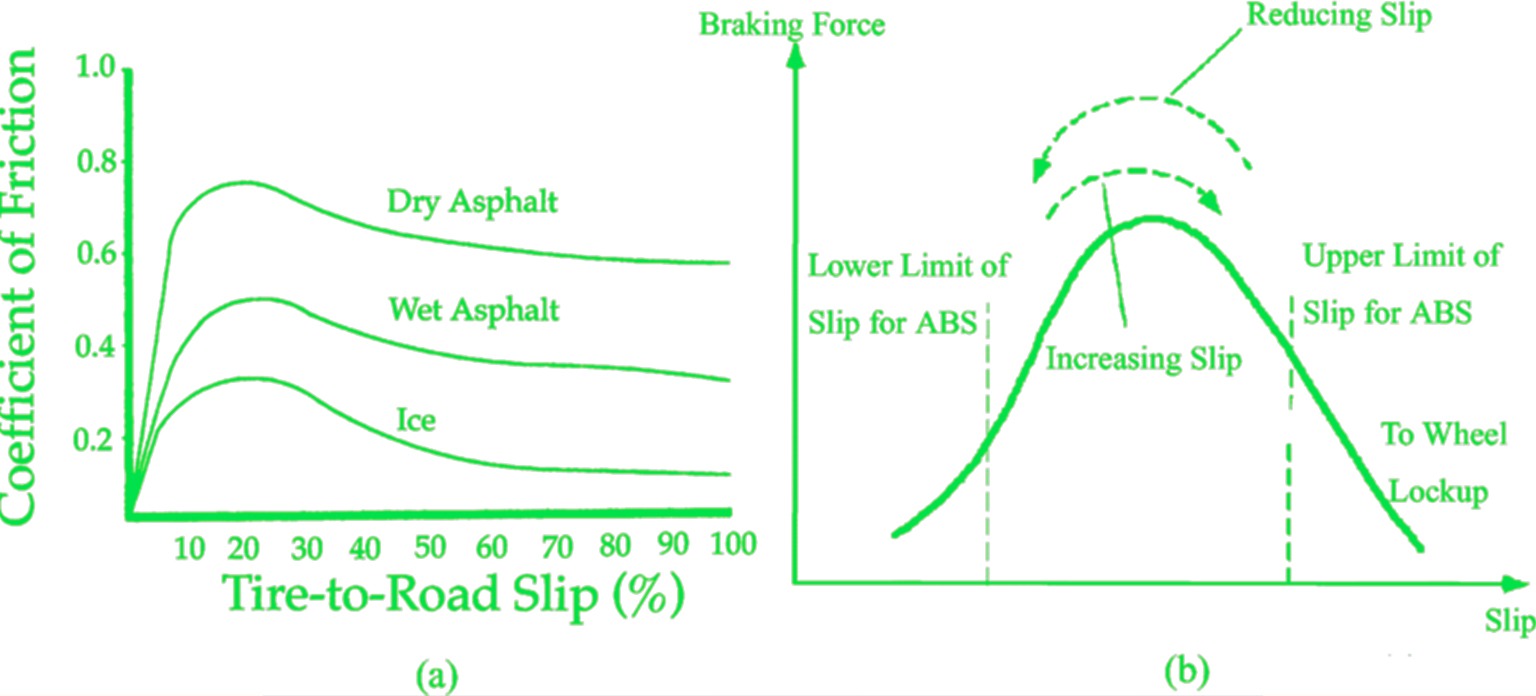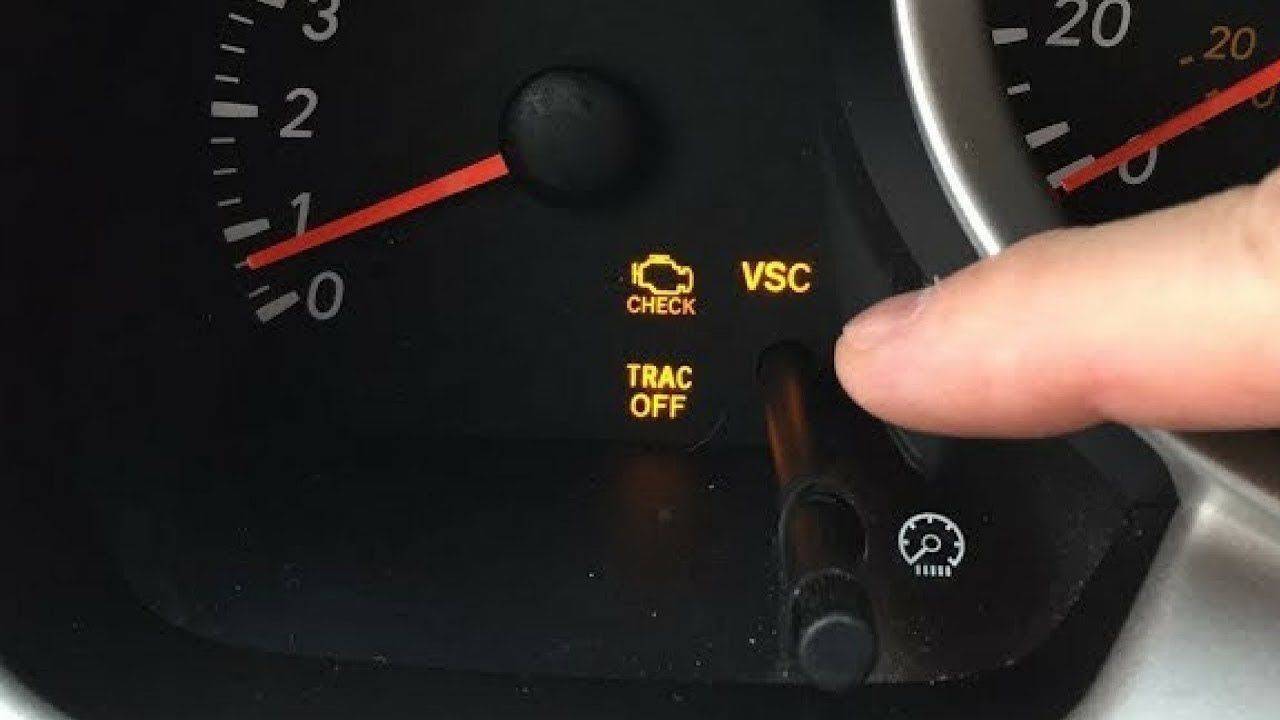Brakes Slipping When Wet: Causes, Remedies, and Prevention
If you're driving in the rain, you know that conditions can be difficult. You need to be extra careful while driving because slippery roads and poor visibility can make it hard to navigate your vehicle safely.
However, there are some things that drivers don't consider when driving in the rain: What happens if your brakes slip? If your brakes fail while driving on wet roads or in heavy downpour traffic, what might happen?
Why does Brake slip on wet roads?

There are a few reasons why brake pads may slip on wet roads.
One reason is that the brake pads may not be making proper contact with the rotors. This can be due to a number of factors, such as worn-out brake pads, dirty or corroded rotors, or improperly adjusted brakes.
Another reason is that when braking on a wet surface, the car's tires lose traction and start to slide. This can cause the brake pads to slip off the rotor, reducing braking power.
Finally, if the car's antilock braking system (ABS) is activated, it will override the driver's attempts to brake and will instead pulse the brakes on and off very quickly to keep the tires from slipping. This pulsing can also cause the brake pads to slip off of the rotor.
Causes of brakes slipping when wet
There are several possible causes for brakes that slip when wet. The first step to diagnosing any problem is to ensure you've ruled out the most obvious causes.
Make sure your brake fluid level is sufficient and fresh enough for the conditions (a little over a year old). If you've been driving in rain or snow regularly, check the condition of your Brake rotors and pads; if they're worn down, they need to be replaced.
If those things check out okay, there are still some less obvious reasons why your brakes might not perform as well as they should: leaking lines or brake calipers can cause issues, as can contaminated fluid or overheated pads.
If this sounds like something that's happening on your car, don't worry! We'll walk through how to fix each issue below.
Remedies for brakes slipping when wet
Check your brake pads. If you have rear drum brakes, check to ensure that the shoes have been adjusted properly and are not worn out. If they are, replace them with new ones.
Check your brake fluid. Brake fluid absorbs water and may become contaminated if the system sits for an extended period without being used.
So if you’re not driving regularly, it’s a good idea to check this every so often just in case there is any buildup of moisture in the lines or components of your braking system that could cause damage over time (and potentially lead to other problems).
Check your brake hoses. Look where they connect at each wheel well—if there is any kind of leakage here (e.g., from rust), it’s a sign that these hoses will need replacement soon (especially if they have become hard from age).
You can also inspect these hoses by hand: look for splits or cracks along their length; if you find any such weakness, then it's probably time for replacement as well!
Check your brake lines. Check the condition of your brake lines and adjusters. If you notice any leaks, you should get them checked out right away.
Check your master cylinder. If your master cylinder is leaking, it could mean that the seals around the piston are damaged. To repair this, you’ll need to remove the top cover of the master cylinder, which usually requires removing the entire front end of your vehicle.
This isn’t something you want to do unless you know what you’re doing, but if you’ve got a spare set of hands available, it’s definitely worth checking out.
Preventing brakes from slipping when wet when (VSC) is not working

There are a few ways to prevent brakes from slipping when wet.
One way is by installing brake pads with a higher coefficient of friction. This will help the brake pads grip the rotor more effectively, even when wet.
Another way to prevent brake slippage is by using high-performance brake fluid. This fluid has a higher boiling point, which helps keep the brakes functioning properly even in extreme weather conditions.
Finally, you can install a brake kit that includes a water-repelling coating for the brake rotors and pads. This will help keep the brakes functioning properly, even when wet.
How Can I Prevent My Car From Slipping On Wet Roads?
Driving in the rain isn't always easy. Rainy days often mean that roads are slick and visibility is low. To help prevent your vehicle from sliding on wet roads, follow these tips:
1. Slow Down
Slowing down helps reduce your speed and the amount of force your wheels exert on the road. Slower speeds will allow you to maintain better control of your vehicle and keep you safer.
2. Use a car with ABS and VSC system
ABS stands for Anti-lock Braking System. These systems work by automatically applying pressure to your wheel brakes when your vehicle starts to skid. They do this by using sensors located under each tire.
VSC stands for Vehicle Stability Control. This feature works by monitoring how far your vehicle deviates from its lane and adjusting your steering wheel accordingly.
By doing this, VSC helps ensure that your vehicle stays within its lane and maintains a safe distance between itself and other cars.
3. Drive Carefully
Drivers who drive carefully in bad weather tend to experience fewer accidents. They also tend to travel slower, which means that they won't encounter as many hazards on the road.
4. Use tire with high-grip
Tires with high-grip treads provide better traction on wet surfaces. Tires with higher levels of grip can hold onto the road surface for longer periods. This allows you to stay on the road and maintain greater control of your vehicle.
Brakes slipping when wet: Causes, remedies, and prevention (FAQs)
1. What is wheel slip?
Wheel slip occurs when one or both tires lose contact with the road. When this happens, the tires no longer have any traction and begin to slide across the road. Wheel slip is caused by several factors, including poor driving technique, worn tires, and slippery road conditions.
2. When should I use my emergency brake?
If you're driving on a rainy day, you'll probably notice that your vehicle's brakes start to feel less responsive than usual. You may have to apply the brakes harder and faster than normal just to slow down. In most cases, your vehicle's anti-lock braking system is kicking into action.
3. What Are the Best Maintenance Methods for car brakes?
The best maintenance methods for car brakes include regular cleaning and lubrication. Regularly clean your car's brake pads and rotors to remove dirt and grime. Lubricate them with an oil that contains friction reducers. If you don't know what kind of brake fluid to use, check out our article on choosing the right brake fluid.
4. Types of car brake
There are many types of car brakes for different purposes. For example, disc brakes can stop the wheel from spinning. A drum brake is also an option for cars.
These brakes work differently from each other and have different pistons inside the brake pad, which can either be attached to the wheel or the axle.
5. What are the best ways to prevent skidding?
The best way to avoid skidding is to slow down.
6. What Can You Do If Your Car Slips?
If your car does skid, remember not to slam on the brakes, and do not pump the brakes if you have an anti-lock braking system (ABS).
7. Why should you avoid heavy braking on wet road?
Heavy braking on wet roads can cause your tires to lose their grip on the road. When this happens, your vehicle may start to slide or spin out. Heavy braking can also cause your vehicle's suspension to compress, which can lead to damage to your vehicle's frame.
8. What is the safest way to stop on a wet road?
The best way to stop safely on a wet road is to use all four tires. When braking hard, most drivers apply too much pressure to one or two of their tires. Doing so causes them to lose traction and slide off the road. Using all four tires ensures that you'll have enough traction to stop safely.
9. What are the best tires for rain?
You should consider choosing tires with good traction when driving in rainy conditions. Good traction tires include those made by Bridgestone, Michelin, Pirelli, Toyo, Yokohama, and others.
10. Can I use my regular tires on wet roads?
Yes! You don't need special tires for wet roads. Some people prefer to use their regular tires because they're more comfortable. However, if you want to be sure that your tires perform well on wet roads, then it's best to choose tires specifically designed for such conditions.
11. What is the best type of tire for winter driving?
Winter tires are specially designed to handle snow and ice. The best types of winter tires include studded tires, snowflake tires, and all-season tires.
Studded tires dig into the ground and create friction against the pavement.
Snowflake tires are similar to studded tires but have small spikes that protrude from the bottom of the tire.
All-season tires are designed to give excellent performance in dry and snowy conditions.
Conclusion
There are many reasons why your brakes might slip in the rain, but if you follow these tips, you can prevent it from happening. It's important to have an understanding of how your brakes work and why they may malfunction when wet so that you can do something about it before it becomes a real problem on the road.
